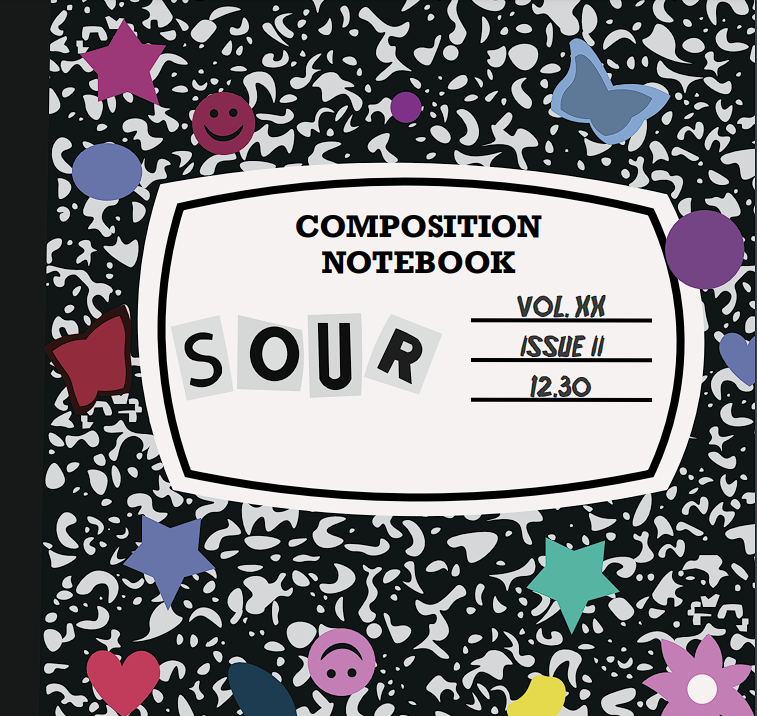By Andy Yang

For the past decade, the ongoing argument concerning food has been whether to buy organic or conventional food. The idea that organic food is better for people has spread from a small niche of people to the mainstream public. Junior Gabrielle “Brii” Robbins is one such person who purchases and grows organic foods in order to live a healthier lifestyle.
“We don’t like supporting people who put chemicals in food, and we just think that organic food is better for you,” Robbins said.
Robbins is not alone in this aspect. According to the Organic Trade Association (OTA), organic foods have seen an increase in sales from $1 billion in 1990 to $26.6 billion in 2009. However, the American Journal of Clinical Nutrition, in a 2009 study, found no evidence to support the claims that organic foods have greater nutritional benefits than conventional foods, which leads to the question as to why people are partaking in this movement.
But despite this, sales for organic foods have continued to climb, increasing 5.3 percent in the last year, despite the economic situation. According to Nancy Spencer, a family and consumer science teacher, the trend is a media driven one. “The media is where everybody hears about it and gets information, but I would be interested to know what percentage of people actually do research before they make the decision.”
Spencer also said there are many people who buy organic foods without understanding the implications involved.
“Some people will buy organic simply because it says organic,” Spencer said. “They may not know truly what that means. Then you have other people who do it and are informed. They know what buying organic (means), whether its 100 percent or not, that they’re not using pesticides. When someone sees a food stamped as organic, they’re probably going to think that it’s better for them.”
Robbins said she believes the media has a huge role in this trend as well.
“I think organic food is marketed as healthier, so people are more likely to buy it so that they can adhere to real or perceived notions about health. It’s a toss-up between whether they’re actually aware of the benefits or not. However, I think that a lot more people are becoming more and more aware of the benefits of organic food, and thus less likely to buy it in order to follow the trend,” Robbins said.
In reality, pesticides make little difference in the quality of food. According to Spencer, the real benefits aren’t related to nutrition at all.
“There are different levels that you can call certain things organic, as far as how much pesticide or what pesticides are used,” Spencer said. “It’s simply that people do not want pesticides in their foods. It’s not necessarily a nutritional benefit, as much as they don’t want the actual chemicals in their foods. There are so many studies telling people to go one way or another. It’s personal preference really. It’s kind of like processed foods. I think you’ll find that if a person likes organic foods, they probably don’t like processed foods. It’s the same concept because of the types of chemicals that are added to the foods.”
Robbins does believe that there is a major difference between organic and conventional food however. “(Organic foods) are healthier in general, because we’re not putting chemicals in our bodies. They’re better for the environment because if you buy food without pesticides…there’s no run-off into streams and rivers that kill fish. It’s just a better cycle of use.”
However, the chemicals used in conventional foods help prevent disease, pests and weeds. This trade-off between chemicals and food growth is what causes the controversy for the issue according to Spencer.
“I think people are thinking that (pesticides) are worse than what they’re trying to prevent, and that’s where the informed the decision comes in,” Spencer said. “There are so many sides to the story as far as whether what benefits outweigh the other. Everybody has their own opinion about this.”
Senior Zenas Shi is one person who disagrees with the fact that organic foods are significantly better.
Shi said, “My parents are the ones who buy the groceries and they just feel that the organic foods that they buy at the store aren’t any better than the other food they buy. There really are little to no benefits that we found eating organic.”
As for the environmental effects, Shi believes that chemicals in food make little difference. “Well although organic foods don’t use pesticides which might run off into streams or rivers, I think that the amount of pesticides used is minimal, so yes, there are differences and there might be problems, but the effects are minimal.”
But Robbins will continue to eat organic food despite this. “I would only switch over to conventional foods if they somehow became healthier for you.”































![British royalty are American celebrities [opinion]](https://hilite.org/wp-content/uploads/2024/03/Screenshot-2024-03-24-1.44.57-PM.png)




















![Review: “The Iron Claw” cannot get enough praise [MUSE]](https://hilite.org/wp-content/uploads/2024/04/unnamed.png)
![Review: “The Bear” sets an unbelievably high bar for future comedy shows [MUSE]](https://hilite.org/wp-content/uploads/2024/03/unnamed.png)
![Review: “Mysterious Lotus Casebook” is an amazing historical Chinese drama [MUSE]](https://hilite.org/wp-content/uploads/2024/03/0.webp)
![Thea Bendaly on her Instagram-run crochet shop [Biz Buzz]](https://hilite.org/wp-content/uploads/2024/03/IMG_0165-1200x838.jpg)
![Review: Sally Rooney’s “Normal People,” is the best book to read when you are in a time of change [MUSE]](https://hilite.org/wp-content/uploads/2024/03/20047217-low_res-normal-people.webp)
![Review in Print: Maripaz Villar brings a delightfully unique style to the world of WEBTOON [MUSE]](https://hilite.org/wp-content/uploads/2023/12/maripazcover-1200x960.jpg)
![Review: “The Sword of Kaigen” is a masterpiece [MUSE]](https://hilite.org/wp-content/uploads/2023/11/Screenshot-2023-11-26-201051.png)
![Review: Gateron Oil Kings, great linear switches, okay price [MUSE]](https://hilite.org/wp-content/uploads/2023/11/Screenshot-2023-11-26-200553.png)
![Review: “A Haunting in Venice” is a significant improvement from other Agatha Christie adaptations [MUSE]](https://hilite.org/wp-content/uploads/2023/11/e7ee2938a6d422669771bce6d8088521.jpg)
![Review: A Thanksgiving story from elementary school, still just as interesting [MUSE]](https://hilite.org/wp-content/uploads/2023/11/Screenshot-2023-11-26-195514-987x1200.png)
![Review: When I Fly Towards You, cute, uplifting youth drama [MUSE]](https://hilite.org/wp-content/uploads/2023/09/When-I-Fly-Towards-You-Chinese-drama.png)
![Postcards from Muse: Hawaii Travel Diary [MUSE]](https://hilite.org/wp-content/uploads/2023/09/My-project-1-1200x1200.jpg)
![Review: Ladybug & Cat Noir: The Movie, departure from original show [MUSE]](https://hilite.org/wp-content/uploads/2023/09/Ladybug__Cat_Noir_-_The_Movie_poster.jpg)
![Review in Print: Hidden Love is the cute, uplifting drama everyone needs [MUSE]](https://hilite.org/wp-content/uploads/2023/09/hiddenlovecover-e1693597208225-1030x1200.png)
![Review in Print: Heartstopper is the heartwarming queer romance we all need [MUSE]](https://hilite.org/wp-content/uploads/2023/08/museheartstoppercover-1200x654.png)























![Review: Ladybug & Cat Noir: The Movie, departure from original show [MUSE]](https://hilite.org/wp-content/uploads/2023/09/Ladybug__Cat_Noir_-_The_Movie_poster-221x300.jpg)

![Review: Next in Fashion season two survives changes, becomes a valuable pop culture artifact [MUSE]](https://hilite.org/wp-content/uploads/2023/03/Screen-Shot-2023-03-09-at-11.05.05-AM-300x214.png)
![Review: Is The Stormlight Archive worth it? [MUSE]](https://hilite.org/wp-content/uploads/2023/10/unnamed-1-184x300.png)



